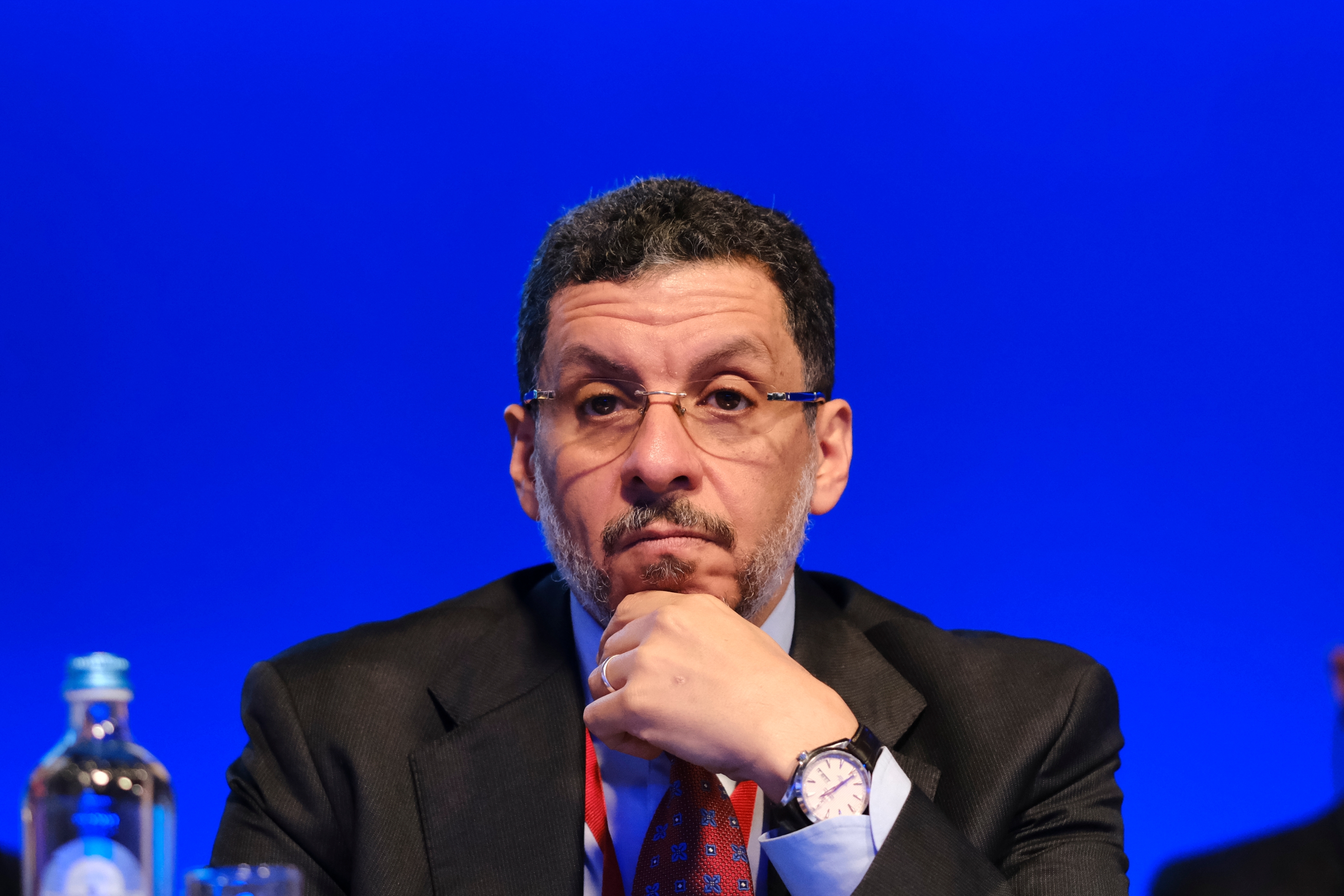Yemen’s Prime Minister, bin Mubarak, resigns
For bin Mubarak, the resignation means the end of a turbulent chapter. Once seen as a rising star in Yemeni politics, his legacy is mixed, marked by bold reform attempts but ultimately constrained by the realities of a fractured state. “I have exerted my utmost effort to serve the homeland,” he wrote in his letter. “I hope my decision contributes to Yemen’s unity.”

Ahmed Awad bin Mubarak, the prime minister of Yemen’s internationally recognized government, announced his resignation on Saturday, citing his inability to exercise authority or enact critical reforms in a country fractured by a decade-long civil war. The departure of bin Mubarak, a seasoned diplomat and a vocal critic of the Iran-backed Houthi rebels, is a significant setback for the Saudi-backed government as it faces internal divisions and escalating regional conflicts.
In a resignation letter addressed to Rashad al-Alimi, head of the Presidential Leadership Council (PLC), bin Mubarak wrote, “I could not exercise my constitutional powers and take the necessary decisions to reform government institutions or implement rightful governmental changes.” He described facing “many difficulties,” including resistance to his efforts to reshuffle the cabinet, and pointed to achievements such as fiscal reforms and anti-corruption measures despite the constraints.
Bin Mubarak’s exit, after just 15 months in office, shows the fragility of Yemen’s anti-Houthi coalition, which operates under the shadow of Saudi Arabia and struggles to assert legitimacy against the Houthi regime controlling the capital, Sana’a. His resignation comes at a pivotal moment, as the Houthis intensify missile attacks on Israel (with three in the last 48 hours) and disrupt Red Sea shipping, further complicating Yemen’s path to stability.
A Tenure Marked by Conflict
Bin Mubarak, 55, assumed the premiership in February 2024, bringing a resume that included stints as Yemen’s foreign minister and ambassador to the United States. A survivor of a 2015 Houthi abduction, he emerged as a fierce advocate for international action against the rebels, urging the European Union to designate them a terrorist organization. Yet his ambition to centralize power within the PLC, a body created in 2022 to unify anti-Houthi factions, sparked repeated clashes with al-Alimi and other council members, according to Yemeni officials and analysts.
The tensions peaked over bin Mubarak’s suspension of budgets for several ministries, including defense, on grounds of corruption, which alienated important allies. Al-Alimi, backed by Saudi Arabia, rejected bin Mubarak’s proposal to dismiss 12 cabinet ministers, leaving the prime minister politically isolated. “Bin Mubarak’s drive for greater power, viewed by many as fuelled by personal ambition, led to repeated confrontations,” said Farea al-Basha, a Yemeni political analyst based in Aden. “This eroded trust within the council.”
Two senior Yemeni officials, speaking on the condition of anonymity to discuss internal deliberations, said bin Mubarak’s resignation had been anticipated for months. “The Saudis wanted a more cohesive leadership,” one official said. “His push for presidential powers was untenable.” The officials confirmed that Finance Minister Salem Saleh bin Braik is a leading candidate to replace bin Mubarak, though no formal announcement has been made.
A Fractured Government in a Fractured Nation
Yemen’s civil war, now in its 11th year, has pitted the Houthi movement against a coalition of anti-Houthi forces backed by Saudi Arabia and, to a lesser extent, the United Arab Emirates. The conflict has killed tens of thousands, displaced millions, and left Yemen, the Arab world’s poorest country, on the brink of economic collapse. The internationally recognized government, based in Aden, controls less territory than the Houthis, who hold Sana’a and much of the northwest.
The PLC, established to bridge divides among anti-Houthi factions, has struggled to function as a unified body. Saudi Arabia supports al-Alimi and figures like Sheikh Sultan al-Aradah, the governor of oil-rich Marib, while the UAE backs other factions, creating a delicate balance. Bin Mubarak’s resignation highlights the challenges of governing under foreign patronage, with Saudi Arabia wielding significant influence over the PLC’s decisions.
“Bin Mubarak’s departure could ease some internal tensions, but it doesn’t resolve the deeper structural issues,” said Elana DeLozier, a Yemen expert at the Washington Institute for Near East Policy. “The PLC remains a coalition of rivals, and any new prime minister will face the same constraints: limited authority, Houthi aggression, and a collapsing economy.”
Bin Mubarak’s tenure included efforts to stabilize Yemen’s economy, such as securing a $500 million Saudi aid package in December 2024 to pay salaries and bolster the plummeting Yemeni riyal. But systemic challenges, corruption, currency depreciation, and disrupted oil exports due to Houthi attacks, proved insurmountable.
In his resignation letter, bin Mubarak expressed hope that his exit would “create a spirit of harmony” within the government, echoed by some analysts who see potential for renewed cohesion.
U.N.-led peace talks, which have shown tentative progress, may also be affected. Bin Mubarak was a vocal proponent of pressuring the Houthis diplomatically, and his replacement’s stance could shape Yemen’s negotiating position. “The timing is critical,” said a Western diplomat involved in the talks, speaking on the condition of anonymity. “A leadership transition could either disrupt the process or provide a fresh start, depending on who takes over.”
The challenges facing the internationally recognized government remain daunting. The economy is in free fall, with 80 percent of the population reliant on humanitarian aid. Houthi attacks continue to destabilize the region, and internal divisions threaten to undermine the anti-Houthi coalition’s credibility.
The PLC prepares to name a successor, with Yemen at a crossroads. The next prime minister will inherit a nation in crisis and a narrow window to chart a path forward.